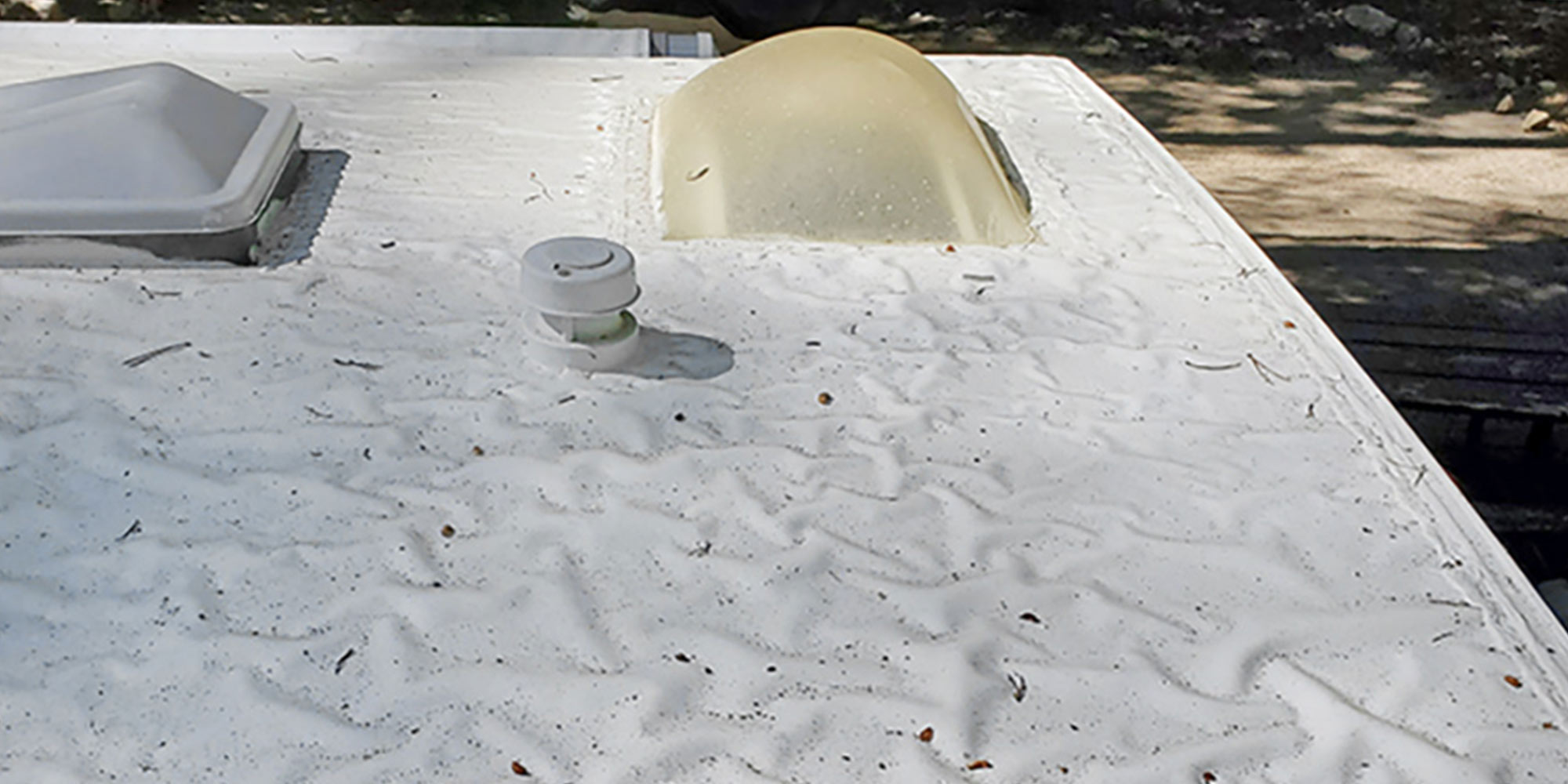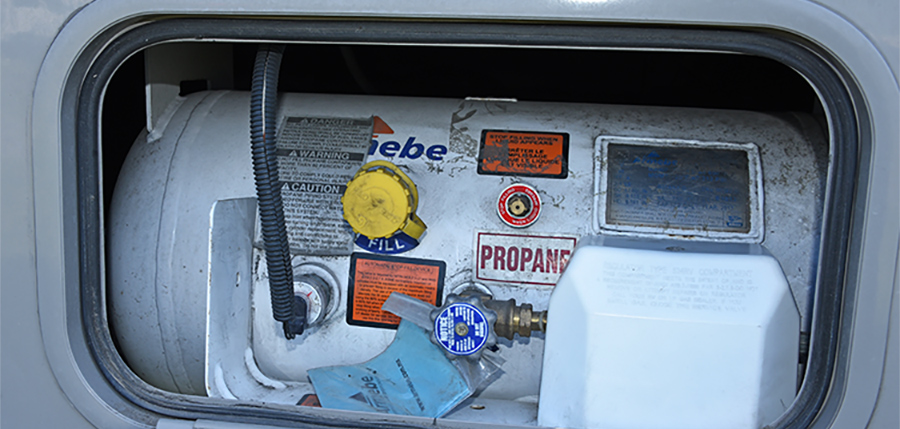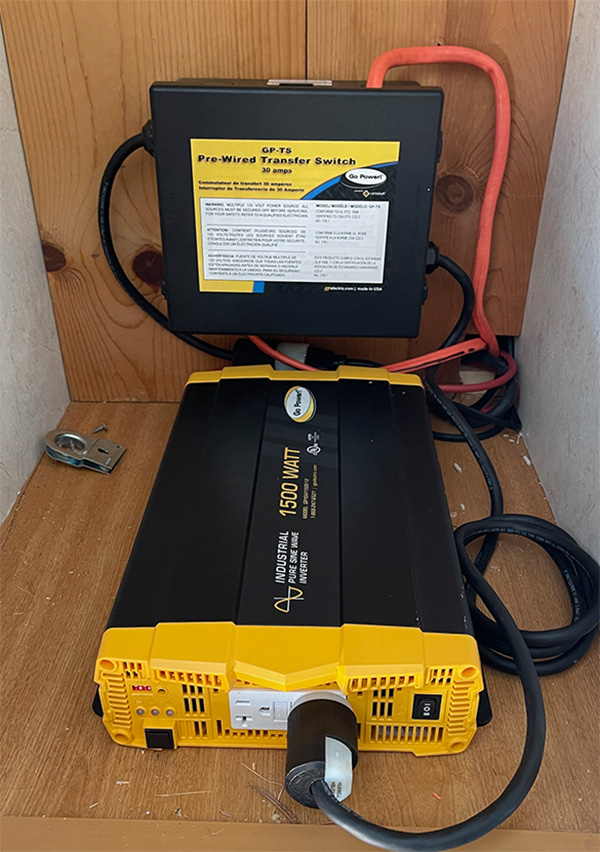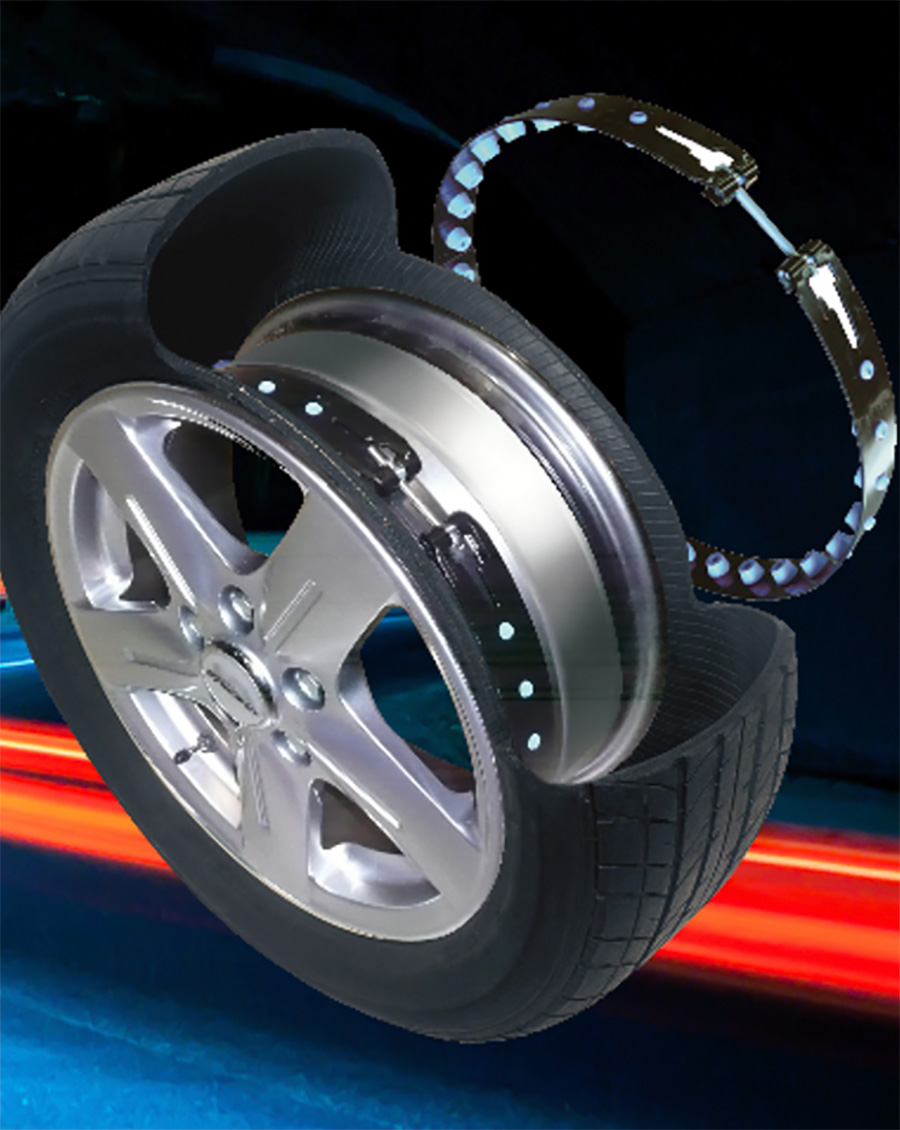Technically Speaking – Q&A: February 2022

I own a 2006 Hitchhiker and the rubber roof has pretty much seen better days. After calling a couple of local RV repair outfits, the price seems to be kind of up-and-down and nobody seems to agree on which type of rubber roof material to use. I want to keep the fifth wheel for several more years and would like to have a quality install. Any suggestions?
— Jim Anderson
Jim, I can relate to what you’re going through. The materials and price can differ quite a bit. There are three basic choices — EPDM, PVC and TPO — and they all vary in price. I prefer the TPO because it won’t oxidize as easily as the EPDM, which came on your rig. TPO will not bleed black stains as readily and, more importantly, it is more tear-resistant than the others. The prep and process to lay down a new roof is labor-intensive and is quite expensive, especially considering the the labor rates nowadays. It’s also important that the installer use the proper glue and self-leveling sealant around the vents, seams and other accessories on the roof. You should also consider replacing the roof with one that is more durable and likely be the last one you’ll ever have to install. There are a few companies competing in this space, like RV Armor (rv-armor.com), that offer complete renovation and lay down material that offers superior service.

Smelling Propane
I’ve been smelling propane in my 1997 Pace Arrow 34-foot motorhome for several months and nobody has really been able to track it down. Finally, a friend of mine and I thoroughly went through every fitting and gas line that we could find and tested them with the appropriate leak-detector solution. After several hours, we narrowed it down to somewhere around the frame-mounted propane tank. After testing the regulator where it goes into the valve, the hoses and everything else that we could find, we finally discovered it was leaking around the packing nut on the shut-off valve. We tightened the packing nut carefully as to not strip it, but we still have a small leak. Are there replacement packing parts available for this? If so, where could I purchase them?
— Gerard Daniels
Gerard, this is a great question. It’s pretty rare that you see one of the valves leaking around the packing nut, but it does happen from time to time. No, there are no packing nut replacements available that I know of — and more importantly, I would not suggest trying to repair a gas valve because you can make things worse. My suggestion is to replace the valve, which should be done by a competent technician certified to work on LP-gas systems.
While you’re at it, take the time to check the propane regulator — it should be replaced every five years, whether it looks good or not, for safety’s sake. Pay close attention to the vent on the regulator; the newer two-stage regulators have side and bottom vents, so be sure that you get the correct one. While you’re changing the regular carefully inspect the neoprene hose that runs from the regulator to the fixed gas pipe attached to the motorhome. Be sure to check all fittings that been changed with your leak detector solution before calling it “good.” And to be even safer, have a technician perform a LP-gas leak-down test, which should be done every year or anytime the system has been opened.

Boondocking Batteries
Bill, my wife and I have decided to do a lot more boondocking. While looking on the Internet I have noticed that a lot of people are switching over to lithium batteries. I also saw that they are rather expensive and I’ve heard bits and pieces of having to change the charging system to accommodate a lithium batteries. What are your thoughts on this changeover?
— Jason Siblie
Although the price of lithium iron phosphate batteries has come down considerably, they are still expensive. If you amortize the cost over a longer period of time, however, the cost can be justified — and the performance is much better. Most lithium batteries are good for at least 10 years. After 10 years of use/charging cycles, there is still roughly about 75% of the battery capacity remaining. The real bonus, though, is the ability to discharge almost completely while retaining the necessary voltage to operate your appliances and accessories. Open (flooded) cell and AGM batteries should only be discharged to 50% before recharging. Also, lithium batteries are capable of handling several thousand more charging cycles than other batteries.
Lithium batteries charge at a different rate, so you will likely need to replace the power converter; most people looking to boondock will install an inverter/charger that can handle the lithium batteries. If you already have solar panels, make sure the charge controller can accommodate lithium batteries. If you do not have solar and you’re going to add a system, you’ll need roughly 200 watts per battery to be minimally effective. Of course, the more wattage the faster the batteries are going to charge — and this also will be more effective on cloudy or rainy days.
As far as safety goes, all lithium batteries come with a battery management system (BMS), which safely regulates discharge and conditioning. With a good solar system and lithium batteries, you will enjoy your boondocking far more than if you were just depending on a generator.

Nervous About Blowouts
I recently had a front-tire blowout on my 2007 Winnebago Journey. Yes, it was a bit scary, especially for my wife as it was on the passenger side. Somebody suggested that I install Tyron safety bands in the front tires to prevent future scary moments. Do they work as well as they claim? More importantly, are they worth the money?
— Dean Capo
The Tyron safety bands (www.tyron-usa.com) really do improve the safety in the event of a front-tire blow out. They are not cheap, but since they only go on the steering axle, you’re just talking about two wheels. Blowouts can affect steering, braking and traction, as well as handling. With a heavy motorhome, it’s not uncommon to experience rapid deflation of the tire, which can send the motorhome off the road.
Tyron safety bands are installed in the center well of each wheel, which prevents the tire bead from coming off the wheel during a blowout or deflation. When the tire comes off the wheel, handling diminishes — and if the tire comes apart, you’ll be looking at quite a bit of collateral damage to the wheel well and other nearby areas, like the fuel filler and other trim.

Bill started his 50-year career in the RV industry when he went to work for an Airstream dealership. After the gas shortages in the 1970s, Bill decided to start his own business and opened up Bill’s RV Service in Ventura, California. After several years in business, he met Bob Livingston, and together they worked on hundreds of technical editorial projects at his shop while becoming great friends. Bill eventually joined Bob on the TV show “RVtoday,” filming a number of hands-on projects. After retiring, Bill headed out full-time in his fifth wheel and toured 39 states while writing technical articles for Trailer Life and MotorHome magazines. He now is Technical Director for RV Enthusiast.
Already a Subscriber? Click here for Access to the Full Issues.

